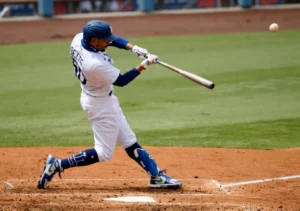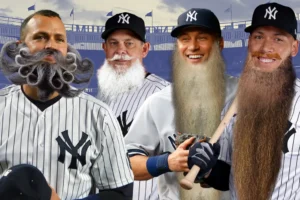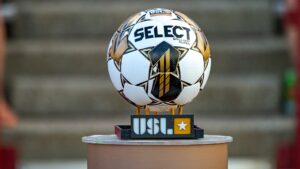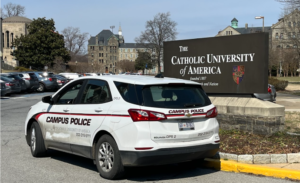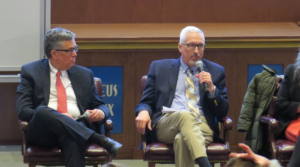NCAA Tournament Opinion: Federal Investigation Looms Over the Fun of March Madness
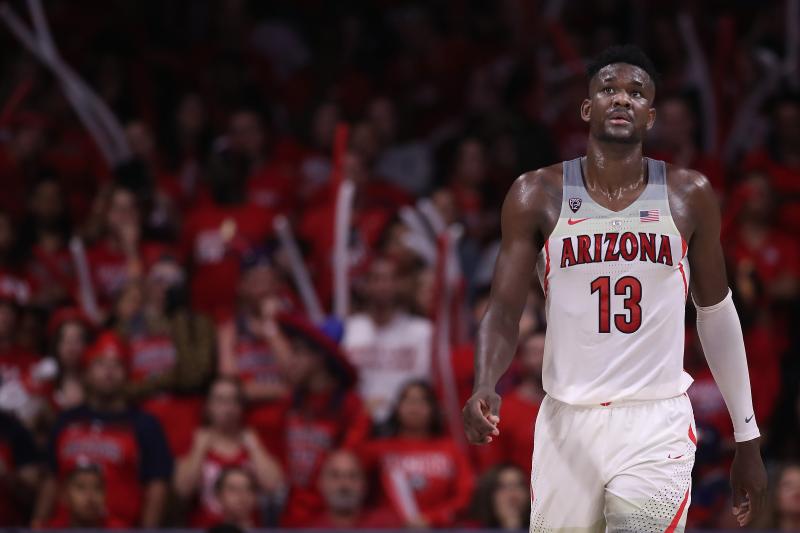
Deandre Ayton's early exit from the NCAA Tourney doesn't remove the controversy surrounding his status as a college player, as he likely will declare for the NBA Draft. Courtesy of Bleacher Report
By Jared Prenda
This. Is. March. For your average sports fan, this is the most wonderful time of the year and for one month underdogs take the national spotlight, big name programs fall under the national eye to see how legit they are, and players become legends and leave their mark on the game forever. This is a different NCAA National Championship Tournament than ones held in years past, however. This year’s bout of March Madness has a dark cloud surrounding it in the form of an investigation by the FBI into top programs and players across the country.
The Federal Bureau of Investigation’s inquiry into the widespread issues of illegal benefits within programs came to prominence on September 26th, 2017, when the findings of the investigation were revealed. Four assistant coaches in prominent programs were charged with bribery and wire fraud for giving illegal benefits to top players in the country to get them to play for their teams. An even wider spread issue is that representatives from various athletic companies and sports agencies often worked with these coaches to get top prospects to sign deals with their companies when they left the NCAA to play professionally.
A February 23rd article by Pat Forde and Pete Thamel posted on Yahoo! Sports named programs such as Duke, Kentucky, Texas, Michigan State, USC, Alabama, and reigning national champions North Carolina as schools involved. It also named high profile student-athletes such as Miles Bridges (Michigan State), Collin Sexton (Alabama), and Wendell Carter Jr. (Duke) as players who received such benefits.
This issue has normally been the worst kept secret in the world, as most of the public already assumed players were receiving such benefits, and to this point the NCAA had typically held a “don’t ask, don’t tell” attitude on the issue while cracking down on smaller infringements. But the FBI has brought to light how widespread the issue truly is.
One assistant charged in the investigation is Emanuel “Book” Richardson, formerly of the University of Arizona, which is a 4-seed in this year’s tournament and many fans’ pick to win it all. Richardson has since been fired by the Wildcats, but a February 25th article by Mark Schlabach claimed that the investigation uncovered a damning conversation between head coach Sean Miller and Christian Dawkins, a former sports agent at ASM who has been charged as a result of the investigation. Miller has since been cleared, but he allegedly discussed paying $100,000 to freshman center Deandre Ayton to ensure he signed with the team. Ayton is one of the frontrunners to win player of the year honors and is widely accepted as one of the top picks in this year’s NBA Draft. Both Ayton and Miller have been cleared of this incident, but the cloud still hangs over the program.
Normally this would not concern most fans due to the lack of consequences handed out by the NCAA. This all changed now since the University of Louisville became the first program in the modern era to be stripped of a national title as the NCAA vacated its 2013 banner as the result of the sex scandal. The team was also forced to forfeit 123 wins spanning from 2012 to 2015 and pay roughly $600,000 in fines to the NCAA. These sanctions are due to a prior investigation into the school which discovered the program’s use of prostitutes and strippers in order to recruit players. The school is now under the eye of the current FBI probe as it has been discovered that at least one coach has worked with representatives from Adidas and a management company to allegedly pay $100,000 to Brian Bowen so long as he signs with them once he left UoL. This investigation forced the Cardinals to fire controversial Hall of Fame level head coach Rick Pitino in mid-October.
These are a few examples of the widespread corruption surrounding college basketball and the NCAA and has triggered many controversies in public opinion, but primarily the debate on the payment of student-athletes to avoid such corruption. The NCAA has been firm in its commitment to keeping the amateurism of student-athletes and do not plan on paying these players. Many players in the NBA have sided against the NCAA, most famously with the comments of Lonzo Ball, a rookie for the Los Angeles Lakers and former UCLA Bruin.
“All the money they generate for the programs and stuff, it’s kind of an unfair system,” commented Ball. “Everybody knows everybody’s getting paid and that’s how it is. Everybody’s getting paid anyway. You might as well make it legal.”
This cloud is surrounding the tournament, yet it does not seem to be retracting from the enjoyment that millions across the country are experiencing. There will still be plenty of heartbreaking and bracket-busting upsets, such as the 11th seed University of Loyola-Chicago’s buzzer-beating three-pointer to eliminate 6th seed Miami. There will still be the meteoric rise of players carrying their team deep within the tournament, and at the end of it all, one team will still be cutting down the nets in San Antonio. But this tournament can best be summarized by Alex Kirshner of sbnation.com.
“Sure, this tournament is somewhat clouded by the chance the NCAA might strip the winner’s title. The FBI’s ongoing investigation is probably going to lead to some powerful figures spending time in prison. The NCAA is likely to follow up by disciplining teams and people in far less serious ways. This month’s games will feel like a mirage, a sham, a sideshow, or maybe just a hilarious farce.”

